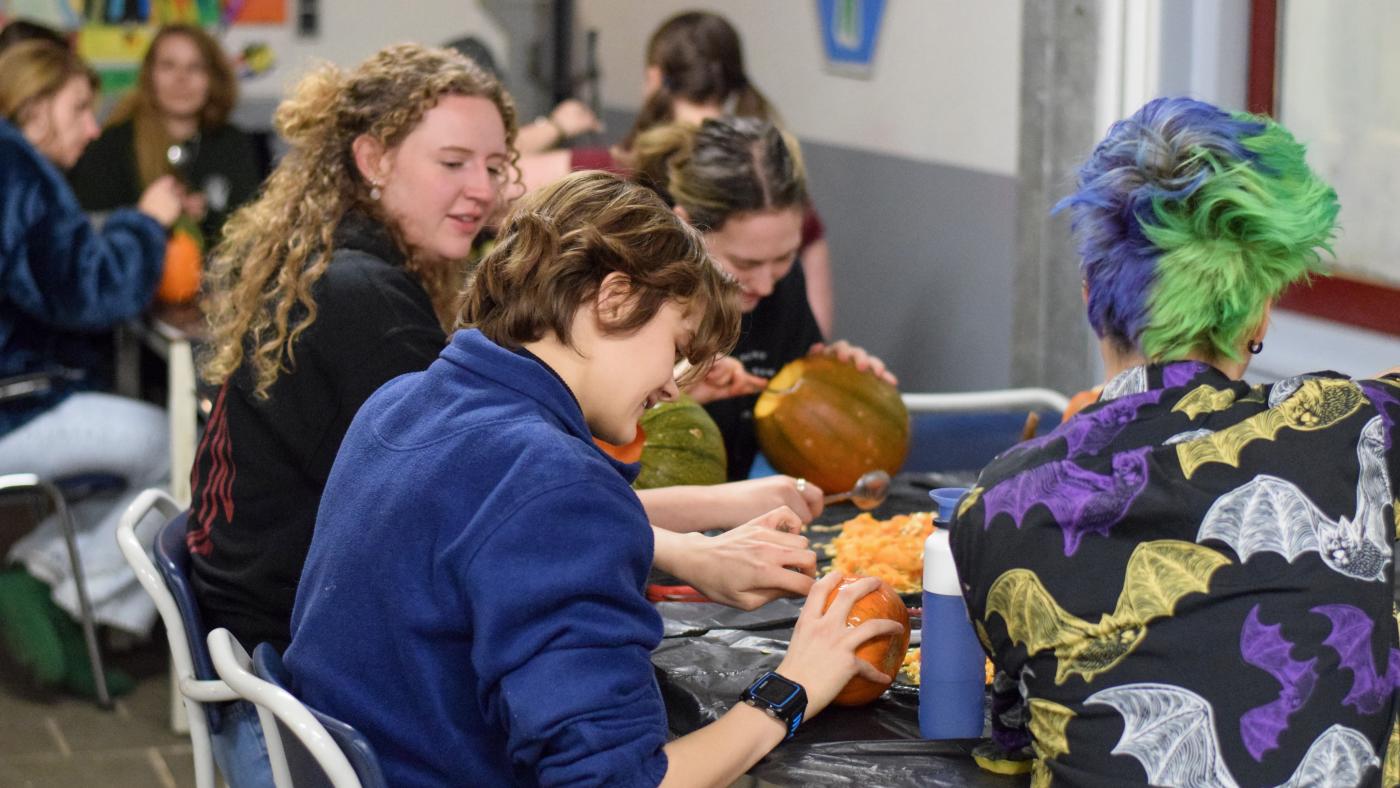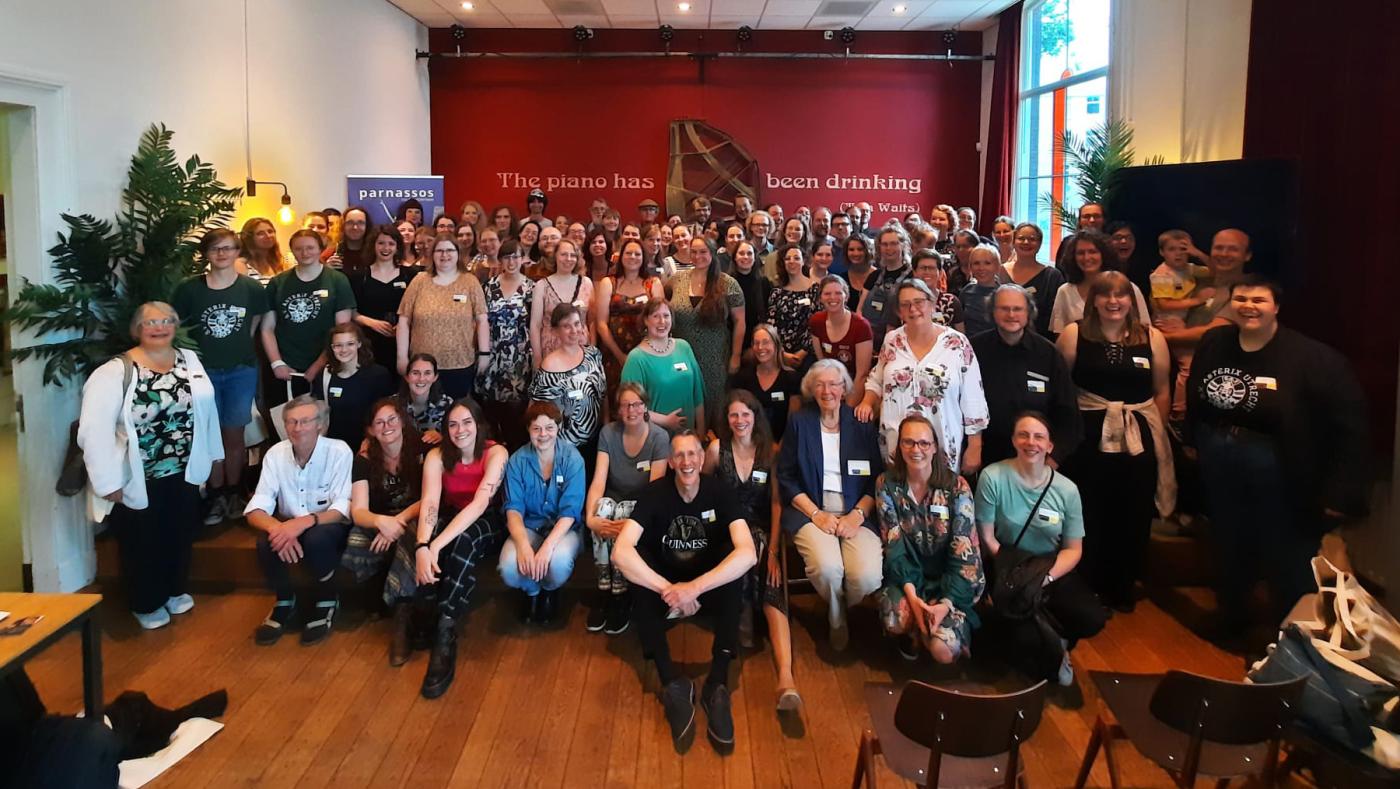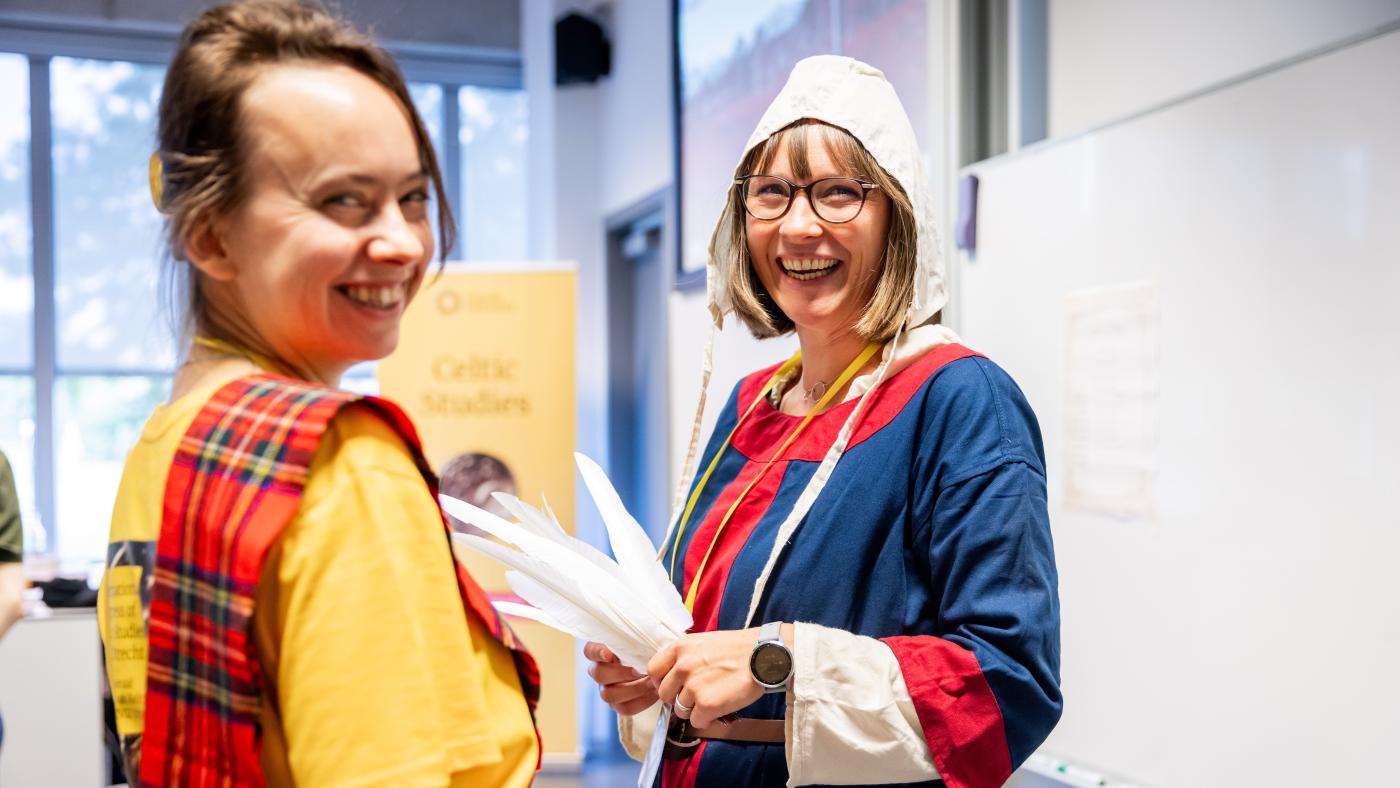Teacher-researcher Nike Stam fears for the visibility of UU's 'pearl'
Will students take Celtic courses if there is no dedicated programme?

"For years, the programme been a jewel in the university's crown". That's how a visitation committee once described the programme Celtic Languages & Cultures.
The programme has consistently scored well on the National Student Survey for decades. Celtic students in Utrecht are indeed extremely satisfied with the programme and its lecturers. It has been consistently featured among the "top programmes" on the survey.
In addition, Celtic Languages & Cultures has a rich history in Utrecht. Last year, its centenary was celebrated in style, with a festival at TivoliVredenburg. “It’s a bit ironic that we’re getting such a message a year later”, sighs lecturer-researcher Nike Stam.
Threatening
Last Friday, Stam and her colleagues were told that the Transition Plan for the Faculty of Humanities foresees the closure of the programme. The faculty has decided to no longer maintain Bachelor's programmes with fewer than 25 first-year students a year. Keltisch gets an average of ten new students yearly, with a striking drop this year. Only two students joined the programme last September.
“That was a shock,” says Stam about the message from the faculty. Since then, she has been living between hope and fear. “We have also been told that our expertise is valued and the faculty intends to retain it. That's nice. But it is not clear yet what will happen, which feels very threatening.”
The programme's staff consists of six people, including chairholder Peter Schrijver and two colleagues with a temporary contract. “There will be no layoffs for the time being and the contracts can simply be served out. But, thinking about the future, the faculty's decision is sad, of course. One of my colleagues wanted to do a PhD. He will be forced to change plans now."
Trust
Stam wishes the programme had had a say in the proposals currently on the table, as religious scholar Birgit Meyer already argued in an op-ed on DUB. At the same time, she understands that the faculty board is under great pressure due to the budget cuts coming from The Hague.
She says she is confident in the possibilities for interdisciplinary collaboration, as the faculty board intends to do. “We already do that a lot with English, History and Linguistics.” However, she is afraid of a loss of "permanence". After all, the structure of a Bachelor’s programme and the requirements that such a programme must meet offer certainty and protection to the employees involved.a
Additionally, she fears that the discipline will become less visible to prospective students if the programme disappears. The Celticists are doing everything they can to introduce a wider audience to the field, such as participating in Science Weekend or being present at the University Museum. Even so, it remains difficult to reach prospective students. “Just this week, I heard from many people that they did not know the programme even existed.”
According to Stam, the most important guarantee for lasting visibility is the status of a separate programme. “Most students choose their programme by surfing websites where universities showcase their options.”

Reunion to celebrate the centenary of the Celtics programme in Utrecht. Photo: courtesy of the programme
Close-knit community
She is delighted with the support the programme has been receiving from students and alumni. “Anyone who chooses to study Celtic and ignores the scepticism expressed by people them must be intrinsically motivated. And we notice that. We have built up a very close-knit community here in Utrecht. Students and alumni are active and engaged, not only with the programme itself but throughout the entire university.”
Stam also knows she can count on appreciation from abroad. “Many of our students do a Master’s or PhD in Cambridge, Ireland, Wales or Scotland, where they are often praised for the education they received from us.”
She also refers to the international expressions of support for a petition asking the programme to be preserved, which has been signed by more than 1,500 people in a single day. “We asked our colleagues in other countries to also make their support known through a letter to our rector.”
Rector Kummeling (or his successor, who will be appointed next spring) has an important task at hand. A special procedure is required to cancel a programme that is the only one of its kind in the Netherlands. The university must seek advice from the rectors of all other Dutch universities as well as from the Sustainable Humanities Programme Office. Only then can the rector decide if the closure is justified.
Stam secretly hopes that Halloween will contribute to the programme's future. This Irish festivity, which is called Samhain there, is popular among Celtic students. “The door to the other world is open for a moment. Perhaps a ghost will come and tell us it is all a mistake.”

Keltologen Natalia Petrovskaia en Nike Stam op het Weekend van de Wetenschap met hun activiteit ‘Kraak de Keltische Code’. Foto: Lize Kraan